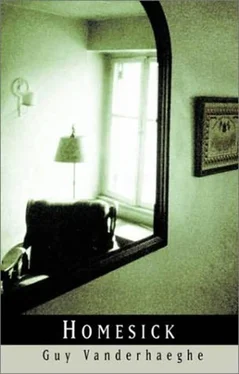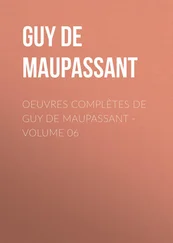“I said, ‘Vera, your brother’s lost.’ It was all I needed to say. She knew what sort of state he’d be in, what that meant. She was up and gone like smoke in a wind.
“Back in those days I was a cigar smoker – White Owls – and I carried them in my back pocket because it was cut deep for a wallet. Earl must’ve spent a good deal of his time face to face with that white owl on the package with its big yellow eyes. Now when we got separated, naturally Earl, being Earl, panics. He gallops off this way and that way, looking. Then all of a sudden, right in the middle of all those asses what does he run up against? A White Owl package and two big old yellow eyes peeping over a back pocket. Sure enough, Earl makes a dive for it and rams his hand down in the pocket. Saved, he thinks.
“Wasn’t me, though. Just another White Owls smoker with his cigars stuck in his ass pocket. Vera arrives on the scene and finds this man shaking Earl by the shoulders, yelling. Of course, he took him for a thief with his hand stuffed down to the bottom of his pocket. I arrive on the scene of the crime just as Vera flies onto this character from behind. She tackles him and clamps down hard. She’s got her arms locked around his belly and her legs scissored around his shins and she’s trying to sink her teeth into his back right through his jacket. She only leaves off biting long enough to holler, ‘Run, Earl! Run for your life!’ and then she squeezes down on the fellow and goes back to work gnawing a chunk off him.
“But Earl’s too scared to run. His eyes are the size of saucers, he’s sucking on his thumb so hard it’s a wonder he doesn’t pull the nail clean off it, and he’s backing off one step at a time, slow, as this man staggers after him, Vera riding him piggyback, sticking like flypaper and bellering, ‘Run for your life, Earl! Run!’ ”
The old man began quaking with laughter. Tears stood in his eyes. “Jesus, wasn’t that something?” he asked. Suddenly, he threw back his head and roared at the sky. “Run for your life, Earl! Run! Jesus, what a commotion. Run for your life, Earl! Run!” he shouted so that his face darkened with blood and effort. “Run! Run!” Then, as abruptly as he had begun, he stopped. Monkman searched Daniel’s face. “She had the right idea, your mother, didn’t she?” he asked softly.
Daniel shifted his buttocks on the ground. He wondered if his grandfather’s uncontrolled shouting had been heard up at the house. He hoped not. It had given him an odd feeling. So had his grandfather’s question.
“I don’t know,” he said lamely.
“No, I suppose there’s no reason you should. And I’ve gone on and on talking. I should have stopped long ago, before I got to such old stories.”
“I liked them,” said Daniel.
“Well, whether you did or not, they’re finished with now. We’d better be getting home.”
“What about the steer?”
“To hell with the steer. I don’t care about the steer anymore.”
“I could check the bush in the field back there.”
“No.”
“It wouldn’t take long. No more than twenty minutes,” argued Daniel. “And then you’d know.”
“It doesn’t matter,” said Monkman irritably. “I don’t care.” He was picking himself off the ground the way a toddler would, braced on all fours, raising his hind end tentatively, by degrees, testing his balance. Then one final effort, an abrupt wrench up out of his stoop and he stood swaying, a little dizzy finding himself upright.
“We come all the way out here and as soon as we get here you’ve all of a sudden got to go. Where’s the sense in that?” demanded the boy peevishly.
“It’s late,” said Monkman, avoiding looking at his grandson. He was angry. By arguing with him the boy made him feel foolish. Yet he knew he wasn’t going to let him set one foot in that bad-luck field.
“It isn’t late.” Daniel glanced at his watch. “It’s not even three.”
“I’m the one who decides whether it’s late or not. So it’s late. Come along.”
“What about my chance for five dollars?” the boy wanted to know. “Have you forgot that?”
“Come.” The old man swung round on his heel and struck out into the summerfallow with awkward, stumbling fury. Anger jerked him like a puppet over the furrows; his boots flicked aside the hot, black, sifted earth; his shoulders see-sawed and twitched.
Daniel stood his ground. “I’m going to look,” he called after him, although without much conviction.
The old man didn’t bother to turn. His right hand snapped up. Pinched between forefinger and thumb something fluttered. When he saw what it was Daniel followed, resigned. The money was something.

Vera stood at the kitchen sink with suds creeping up her forearms, remembering Bob the housepainter. Every now and then the ridiculous row about baseball going on between Daniel and her father in the living room reached such a pitch that this became difficult, but Vera did her best to disregard the noise. For the life of her, she could not fathom how nothing made the two of them happier than an idiotic squabble over something of absolutely no consequence. Of course, the old man was a great tease, always had been, and delighted in provoking Daniel. Vera had warned him not to pay his grandfather any mind, but the boy hadn’t profited from her advice and rose to the bait every time. Daniel might learn yet that there was no winning with the old man. Beat him six ways to Sunday and he still would never cry uncle or allow that there was an outside chance of his ever being wrong.
It was a remark of her father’s before dinner which had brought Bob to mind after all these years. Vera had just pointed out to her father that if he wanted to clean the wax out of his ears with a wooden matchstick, maybe the privacy of the bathroom was more suitable for the operation than the dinner table. He had fastened her with a look of calculated pity and said, “You ought to have considered getting married again, Vera. Then maybe you’d have learned how to live with a man.”
Well, she had considered it and it was Bob the housepainter she had considered marrying. Strange to think. Since Bob, she doubted whether she’d had six dates in the past ten years and, if the truth be known, it would have been no loss to have missed any of them. Probably the business with Bob wouldn’t have lasted as long as it did either, if she hadn’t met him a little less than two years after Stanley died, when she still believed she was obliged to find Daniel a father and thought she couldn’t raise a boy on her own. And who could say? Given the way things had worked out, maybe her thinking then had been correct.
The real mistake was going to bed with him. On the other hand, maybe she needed to make up her mind if she could live with him, day in, day out, in that department. There was nothing else to rule him out. After four months of those sedate outings of his – Saturday-night movies, picnics in the park – Vera knew he wasn’t a drinker, a gambler, a ladies’ man, or the sort who had a dangerous temper. Just a solid, dependable thirty-nine year old without much hair who painted houses for a living and was desperately shopping for a wife to settle down with before it was too late. That pretty well summed up Bob. And although that one trial run in the sack made up her mind, she hadn’t realized it at the time. The unfortunate thing was that Bob must have come to the conclusion it was a sign, because not long after he popped the big question. Popped it standing in line at the Exhibition to buy Daniel a ticket for the merry-go-round, popped it holding her kid in his arms.
Читать дальше













